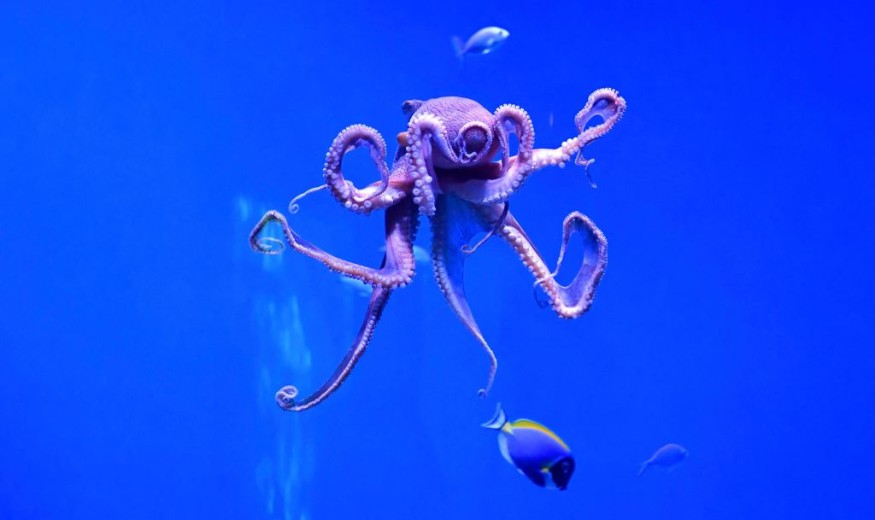
It is already established that octopuses are intelligent beings, even more so than other invertebrate species. A new discovery uncovered as to why this is so - their brain shares similarity with that of humans.
This specific molecular analogy with the human brain may explain the evolution, functioning, and complexity of the nervous system of octopuses. Both human and octopus genome shows a high number of 'jumping genes' or transposons, which are able to duplicate themselves or move around the genome - a surprising similarity between the brains of humans and octopuses indeed, ScienceAlert reported.
Although these transposons are not all active, they are largely considered as raw materials for evolutionary processes. The new study published in BMC Biology reports that transposons belonging to the LINE (Long Interspersed Nuclear Elements) family have been discovered in the part of the octopus' brain that handles cognitive abilities, which is also similarly determined in the human brain.
The 'Seat' of Learning and Cognitive Abilities
Apparently, LINE transposons are regulated in the human brain and may be responsible for learning and memory, according to a study published in Cell. Their disposition shows evidence that they are most active in the hippocampus, where learning processes are controlled from, in the same spot in the brains of two octopus species - the common octopus (Octopus vulgaris) and the Californian octopus (Octopus bimaculoides).
"I literally jumped on the chair when, under the microscope, I saw a very strong signal of activity of this element in the vertical lobe, the structure of the brain which in the octopus is the seat of learning and cognitive abilities, just like the hippocampus in humans," biologist Giovanna Ponte from the Stazione Zoologica Anton Dohrn research institute in Italy told SISSA.
Scientists think this is perhaps the reason behind the high intelligence exhibited by these marine creatures.
Also read : Perfectly Preserved Mummified Baby Mammoth from 30,000 Years Ago Discovered by a Gold Miner
There's More to It
Scientists also believe there's a more direct relationship between the human and octopus' brain than just the copy-and-paste and cut-and-paste mechanisms of transposons, perhaps a more specific function that goes beyond it, said computational genomicist Remo Sanges from the Scuola Internazionale Superiore di Studi Avanzati research institute in Italy.
Moreover, scientists suspect that what they have could be an example of convergent evolution - when completely different and unrelated lineages of structures develop a similar or 'analogous' traits independently, providing the same adaptation, which in this case is superior cognitive abilities - involving retrotransposons activity in the brain.
"The brain of the octopus is functionally analogous in many of its characteristics to that of mammals," says biologist Graziano Fiorito from Stazione Zoologica Anton Dohrn. "For this reason, also, the identified LINE element represents a very interesting candidate to study to improve our knowledge on the evolution of intelligence."
These "evolutionary tricks" and extremely complex cognitive and neurological responses are found to make octopuses more unique and stand out amongst invertebrates, making them more like mammals in terms of brain structure and activity. The study gives insight into the secret of intelligence of these fascinating organisms.
© 2025 NatureWorldNews.com All rights reserved. Do not reproduce without permission.





